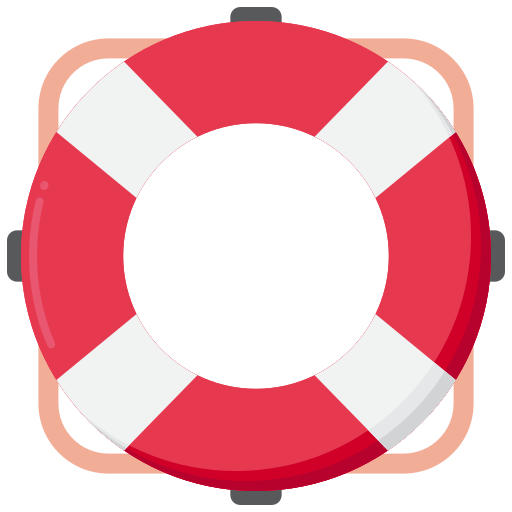Inflatable Boats vs. Rigid Boats: Pros and Cons
When considering watercraft options for recreational use, commercial applications, or emergency situations, two primary categories emerge: inflatable boats and rigid boats. Each type comes with distinct advantages and disadvantages that cater to various needs and preferences. This article delves into the intricacies of both boat types, elucidating their pros and cons to aid in making an informed decision.
Overview of Inflatable Boats
Inflatable boats are versatile watercraft primarily constructed from durable materials like PVC (Polyvinyl Chloride) or Hypalon, a material known for its resistance to UV rays and extreme temperatures. These boats employ air-filled chambers to achieve buoyancy, making them inherently lightweight and easy to maneuver. The design of inflatable boats allows for straightforward inflation and deflation, enhancing their portability and storage capabilities. Their adaptability makes them suitable for a variety of water activities, from fishing and leisure boating to rescue operations and military applications. The varying sizes and configurations available in the market cater to a broad spectrum of users, from casual paddlers to professional mariners.
Pros of Inflatable Boats
- Portability: The lightweight nature of inflatable boats, coupled with the ability to deflate them, allows for easy transportation, fitting comfortably into the trunk of a car. This feature is particularly beneficial for those with limited storage space or for enthusiasts who engage in spontaneous boating trips.
- Affordability: In general, inflatable boats are more budget-friendly than their rigid counterparts. The lower initial investment makes them accessible for casual water sports enthusiasts, families, and individuals looking to explore water navigation without incurring substantial costs.
- Stability: Many inflatable boats are designed with a wide beam that enhances stability, particularly beneficial in choppy waters. This stability serves as a crucial factor for fishing excursions and recreational outings, ensuring that passengers can enjoy their experience without the fear of capsizing.
- Safety: Their buoyant construction allows inflatable boats to absorb shocks in turbulent conditions, which can significantly reduce the risk of injury. This attribute makes them a practical choice for activities in challenging water environments.
Cons of Inflatable Boats
- Durability concerns: While inflatable boats are practical, they can be susceptible to punctures and abrasions if not handled with care. It is imperative to be cautious when navigating in rocky or debris-laden waters to maintain the longevity of the boat.
- Less speed and performance: Compared to rigid boats, many inflatable models lack the hull design required for high-speed navigation. This limitation may be noticeable when attempting to race against the tide or cruising at higher speeds, potentially dismissing inflatable options for performance-focused use.
- Limited space: Although inflatable boats can accommodate multiple passengers, they often offer less storage space than rigid boats. For longer trips requiring extensive gear or equipment, the spatial constraints of inflatable designs may make them less appealing.
Inflatable Boats vs. Rigid Boats: Pros and Cons
The decision between inflatable and rigid boats often hinges on specific requirements and anticipated usage.
| Features | Inflatable Boats | Rigid Boats |
|---|---|---|
| Portability | High – lightweight and can be deflated | Low – requires a trailer for transport |
| Affordability | Generally lower cost | Higher initial investment |
| Stability | Good stability in calm waters | Excellent stability, especially in demanding conditions |
| Durability | Less durable; puncture risk | Highly durable; resistant to impact and abrasion |
| Speed and Performance | Limited speed capabilities | High speed and performance potential |
| Storage Space | Limited storage for gear | More ample storage capacity |
Overview of Rigid Boats
Rigid boats, constructed from various materials such as fiberglass, aluminum, or wood, possess a solid hull that provides structural integrity and performance on the water. They come in various sizes and styles, catering to a wide range of boating activities.
Pros of Rigid Boats
- Durability: Rigid boats are generally more resilient to impacts and abrasions, making them suitable for a variety of environments, including rocky shores or heavy use.
- Performance: With superior hull designs, rigid boats can achieve higher speeds and better handling in different water conditions.
- Storage capacity: The enclosed structure allows for more storage space, making them a better option for extended voyages or transporting larger amounts of gear.
- Self-draining capabilities: Many rigid boats come with self-bailing designs, allowing them to shed excess water more efficiently than inflatable counterparts.
Cons of Rigid Boats
- Weight: Rigid boats are typically heavier and more cumbersome to transport, requiring more effort and larger vehicles for towing or storage.
- Cost: The price point for rigid boats can be significantly higher, which may deter casual users or those with budget constraints.
- Maintenance: Rigid boats may require more regular maintenance, including painting and inspection of structural integrity, leading to increased long-term costs.
Comparative Analysis
| Feature | Inflatable Boats | Rigid Boats |
|---|---|---|
| Portability | Highly portable, lightweight, easy to store | Less portable, requires significant storage space |
| Durability | Less durable, vulnerable to punctures | More durable, resilient to impacts |
| Performance | Lower speed and handling | Higher speed and better handling |
| Cost | Generally more affordable | Usually more expensive |
| Maintenance | Lower maintenance needs | Higher maintenance responsibilities |
Conclusion
The choice between inflatable and rigid boats largely depends on individual requirements and intended use. For those seeking budget-friendly options with excellent portability for recreation and casual outings, inflatable boats present a compelling choice. Conversely, for individuals or professionals requiring durability, performance, and extensive storage, rigid boats are likely the superior option. Understanding the distinct pros and cons of each type allows for a more informed decision that aligns with personal or operational needs.
